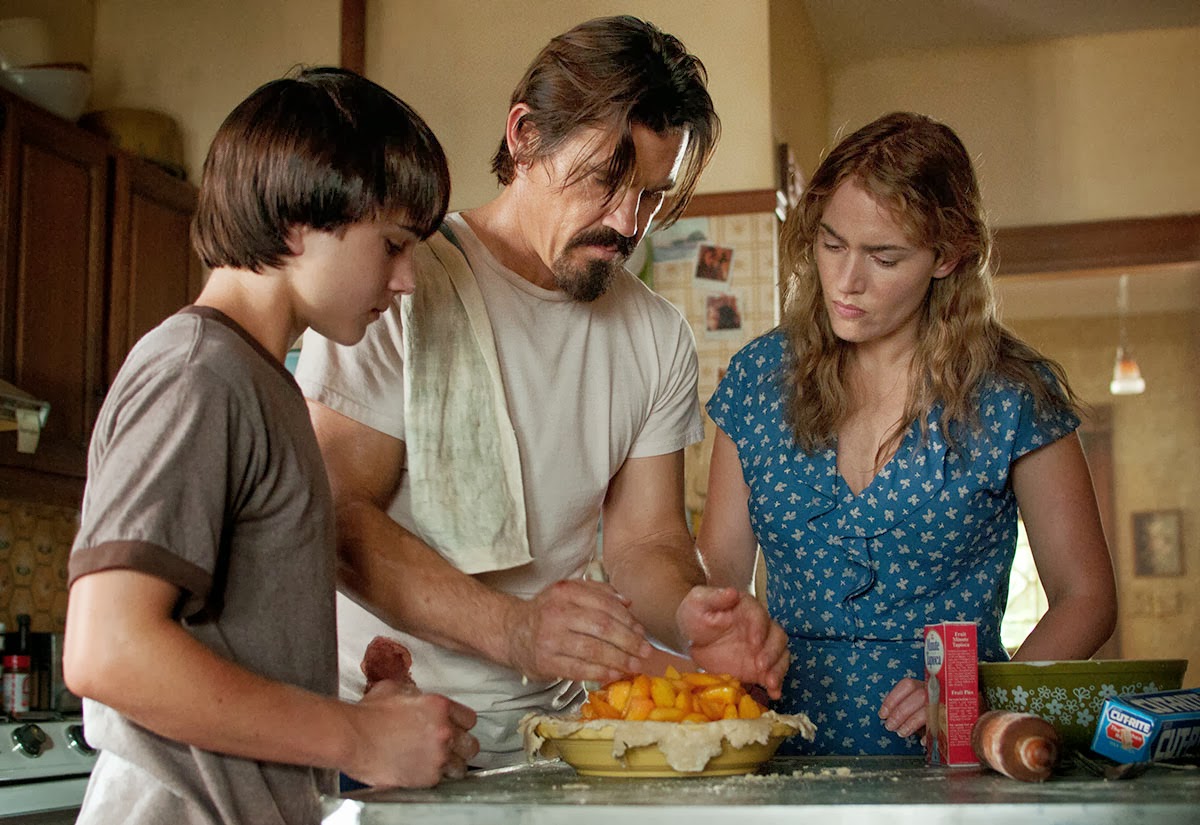Jason Reitman has said that with Labor Day he had to relearn the craft of filmmaking. It shows. The serene, nostalgia-tinted drama, based on Joyce Maynard’s novel, has none of the Canadian director’s trademark sardonic irreverence. While there are hints of humor, given the film’s absurd, near-implausible scenario of a fugitive who plays daddy in a broken family home, Reitman is refreshingly not aiming for cheap laughs here, instead opting for the kind of sincerity required to sell the film’s central idea about the visceral necessity of family love. This unexpected directorial about-face is what Reitman needed to demonstrate that he’s a director with true emotional maturity.
Narrated by Henry (Gattlin Griffith) during the late-summer days of 1987 before he begins seventh grade, the film pairs the boy’s voiceover with gorgeously sunlit cinematography to tell the story of Henry’s fervent but failed attempts to fill his departed father’s shoes. Since his parents’ divorce, Henry’s fragile mother, Adele (Kate Winslet), has sunk into a depression that has broken her off from life almost completely; with nerves shattered and hands shaking, she can barely drive, buy groceries, or go into the bank without the assistance of her son. The film isn’t the sort to imbue subtext or mystery into its characters or their dynamics, yet Labor Day excels in giving the delicate family balance a kind of rewarding poignancy anyway. Reitman’s strength here lies in his imagery, with a focus on close-ups and sensual details, and the effect is a bit Malickian.
When an escaped convicted murderer, Frank (Josh Brolin), forces his way into their home, Henry seems as scared of the brooding, calculating stranger as he is curious. Frank quickly proves his trustworthiness, promising that he won’t hurt Henry or Adele and cooking them food so delicious Adele can’t help but pause, brows raised, after biting into his scrumptious breakfast feast. The film treats the heartfelt moment with a refreshing sincerity in order to not let its own piquancy curdle. It becomes apparent very quickly that Frank treats their forced benevolence with intense gratitude: He sees what’s missing in their life and quickly steps into the role of surrogate father and husband, cleaning, waxing, and fixing up the house as if it were his own. In one notably sumptuous scene, Frank teaches mother and son how to make the perfect peach pie, providing commentary as endearing as any celebrity chef. Labor Day excels in easing Frank’s transformation from hostage-taker to paternal caretaker, and by the end of their second day together a golden, domestic harmony surfaces between all three characters that turns the household into a warm, inviting, familial place.
Labor Day wisely spends the majority of its time under the impressionable, voyeuristic point of view of its 12-year-old protagonist and his developing cognitive schema about male role models, and it only truly loses its emotional core when it begins to cycle through interludes of Frank and Adele’s pasts. With these passages, the editing turns elliptical in an attempt to slowly unspool the misfortunes of their life stories, but this equally Malickian reference point is nothing more than lazy imitation. Labor Day works best when it sticks to the wide-eyed gaze of its prepubescent protagonist, conveying a simple, honest story that doesn’t need to try too hard to transmit its emotions.

